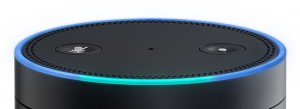
You know, we’ve become bullies (seriously, hear me out on this one). Bullies pick on other people or groups for a variety of reasons—sometimes in retaliation, sometimes ‘just because.’ Other times, bullies target others simply because they’re different.
Let that sink in a bit.
Millennials are taking over the workforce. By 2020, it’s projected that 46% of the workforce will be Millennials or those born after 1980. Yet, they’re bullied.
“They’re lazy and unappreciative of how good they have it.”
“They want to work from home. Don’t they understand working means you have to go to work.”
“They’re high maintenance and never happy, jumping from job to job. I’ve been at the same job for the last 25 years. That’s dedication!”
Now, would you like it if someone talked about your work ethic like this? Probably not, so why bully someone else because they don’t think like you. They’re not you, and the workplace is changing quickly. Rather than bullying younger counterparts, perhaps it’s time to chat about the differences that make them unique and a value to a company. Understanding and embracing these differences will have substantial impacts on the success of your business.
1. Bullies: Millennials Want Work/Life Balance
Actuality: Millennials Want Work/Life Integration
Work/life balance means you’ve struck a harmony between the amount of work and effort you put into your career and the time you have to spend with your family or on personal ventures. And while Millennials see value in work/life balance, they’re more concerned with work/life integration.
Okay….what’s the difference? For Millennials, there’s a big difference. Millennials grew up in the tech generation. Everything and anything they need, work included, is at the power of their fingertips. Work/life integration doesn’t see work and life as separate activities, but rather intertwined together. Work/life integration means Millennials look for easier ways to stay integrated with work, even when they’re not technically at work.
Millennials simply don’t get the 9-to-5 mentality. They’re highly engaged 24/7.

2. Bullies: Millennials Need Their Egos Stroked
Actuality: They Need Their Feedback In Real Time
Gone are the days of the annual review. Yes, you’ll still get one (and hopefully a salary increase, too) but you’ll already know what’s on your review long before the ‘big talk.’
Eighty percent of Millennials crave real-time feedback on their performance and expect regular check-ins with their managers. They want to stay on top of what they’re doing well and what they can improve. They’re also known to question the ‘why’ of a task, versus just doing it because their manager told them to.
For someone that is used to performance feedback on a less-than-regular basis, it might appear that younger generations need their ego stroked. That’s simply not the case.

3. Bullies: Millennials Are Workplace Divas That Will Bolt At A Moment’s Notice
Actuality: Diva? Maybe, But They Know What They Want And Will Get It From Someone Else
Being a Millennial myself, we know what we want, and if we don’t get what we’re looking for, we move on. For me, I’m in my fourth position since I graduated from college 12 years ago (gasp…). On the other hand, my father will be celebrating 35 years at the same company this year. You don’t quite see that longevity amongst the younger workforce. But why?
Remember the recent recession? I do, and it was the reason I left advertising in the auto industry for a more stable, promising place in marketing in the food industry (recession or not, people need to eat.) Being the ‘low-man on the totem pole’ increased layoffs and made Millennials wary of employers. Occurring for many of them during the start of their careers, this generation learned how to adapt, turning to freelancing and having a fall back plan.
The truth is Millennials average 6.2 jobs by the age of 27 and stay with a job for just over three years, but not necessarily by choice. Employers think Millennials are flighty or quick to jump ship, but the recession might have simply hit them harder.
But as a Millennial manager myself, I get it. In a recent conversation with a now former employee, she asked how I knew she was leaving our company before she told me she was. I told her she was going on four years with us and probably feeling the itch to move on. It’s not uncommon either for Millennials to explore new companies and positions to find their niche.
Could Millennials be considered divas with no work ethic? Maybe, but they’re divas that know what they want and where to get it, and how to adapt to make their plan work for them. If their employer isn’t meeting their needs, they’re quick to move on. And that’s okay.

4. Bullies: Millennials Expect Privileges Reserved For Upper Management
Actuality: They Value Flexibility And Companies Are Not Quick Enough To Adopt
Work-from-home, telecommuting, flex scheduling. No matter what you call it, Millennials are looking for it, but so are other employees. Millennials have become the catalyst for this culture shift, and others are seeing just how valuable a flexible schedule can be. However, as a ‘fringe benefit’ typically reserved for the organizational elite, some employers are quick to scoff at the thought of employing flexible scheduling.
Millennials thrive on flexibility and are willing, and able, to leave full-time employment to get flexibility with another organization or with a part-time position. See, many Millennials don’t believe location or the number of hours of work are metrics by which their performance should be measured. In fact, since Millennials thrive on work/life integration and are wizards around technology, there’s a good chance they might be even more productive off site.
Comped time can become an attractive option to Millennials, too. It’s estimated only five percent of businesses offer any type of flexible scheduling on a routine basis. And, since this is something the soon-to-be vast majority of the workforce is looking for, it can be an attractive benefit for millennials to your workplace.
Bottom line: These privileges are no longer reserved for the elite, and employers will need to make fundamental shifts in flexibility to stay competitive amongst job-seekers.

5. Bullies: Millennials Are Digital Addicts Who Have No Respect For Privacy And Boundaries
Actuality: Digital Addicts – Guilty As Charged (But They’re More Private Than You Think)
Mobile phones, tablets, laptops, social media accounts, Yelp reviews, and Tinder. That’s just scraping the surface of the digital technology and apps that Millennials use to do everything from communicate with friends and family to finding a place to eat to even dating. Yes, Millennials are digital addicts (who likely have their phone within arms reach, too). And while they connect, chat, and tweet online, that doesn’t mean they don’t value their privacy or respect work boundaries.
Millennials use technology and their digital connections to work smarter, not harder. And while they still value face-to-face feedback, unlike other generations they’re more open to digital feedback.
But why are Millennials perceived to put their personal and professional lives online? Well, remember, Millennials were born after 1980. They’re the first generation to have access to AOL chat rooms (the struggle was very real), Napster to share music, and social networks like Facebook and Twitter. They lived the transition from beepers to simple mobile phones, and later to smartphones.
They grew up online. Their predecessors didn’t. While it might seem Millennials overshare their personal and professional lives (and some certainly do), don’t bully them.

Conclusion
The workforce is evolving and changing rapidly. Millennials are often misunderstood and bullied because their work ethics, philosophy, and all around upbringing are different from their predecessors. But, with Millennials making up the vast majority of the workforce in the coming years, it’s time to adopt some new principles and policies to stay competitive. If companies cannot change, the workforce will go elsewhere. You just better hope it’s not through the doors of your competition.
(296)








